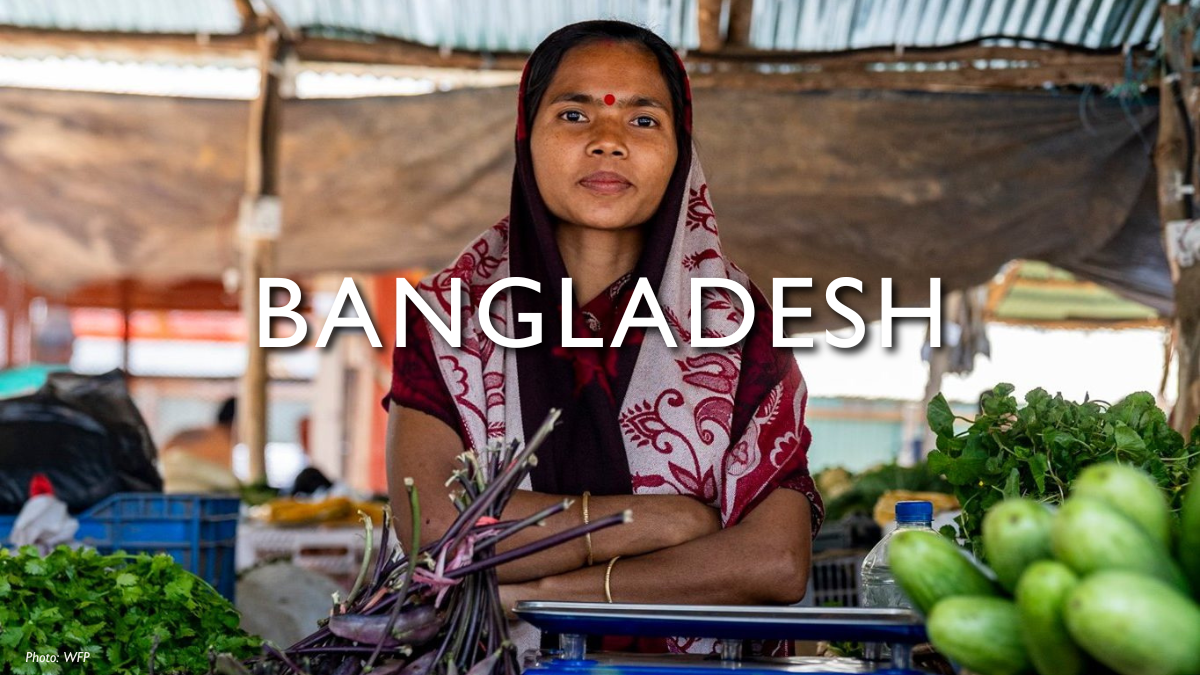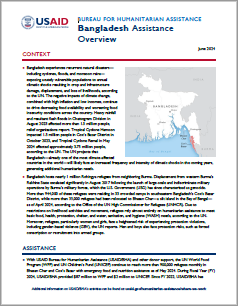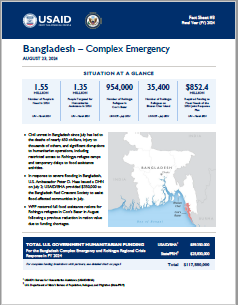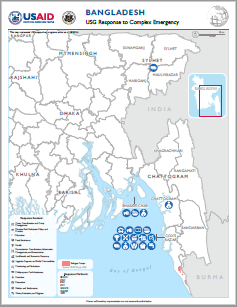
Due to its geography, Bangladesh is acutely vulnerable to recurrent natural hazards, including cyclones, floods, monsoon rains, and storm surges, which can result in crop and infrastructure damage, loss of livelihoods, and displacement, the UN reports. In addition, Bangladesh hosts nearly 1 million refugees in Cox’s Bazar and Bhasan Char, a silt island in the Bay of Bengal, the majority of whom belong to the Rohingya ethnic minority group that fled Burma’s Rakhine State following the launch of military operations by the Government of Burma in August 2017.
On July 1, Ambassador Peter D. Haas issued a declaration of humanitarian need due to the effects of heavy monsoon rainfall and resultant flooding in northeastern Bangladesh’s Sylhet Division that resulted in the deaths of at least ten people and adversely affected an estimated 3.7 million people as of June 28, according to the Needs Assessment Working Group. In response, USAID provided $350,000 to the Bangladesh Red Crescent Society to support flood-affected populations to meet immediate needs. The United States Government has provided nearly $2.4 billion in assistance to the Rohingya refugee crisis—including more than $1.9 billion in support to refugees and host communities in Bangladesh—since 2017. Furthermore, USAID continues to support early recovery, risk reduction, and resilience programming throughout Bangladesh to help vulnerable communities adapt to the effects of natural hazards such as cyclones and floods.



